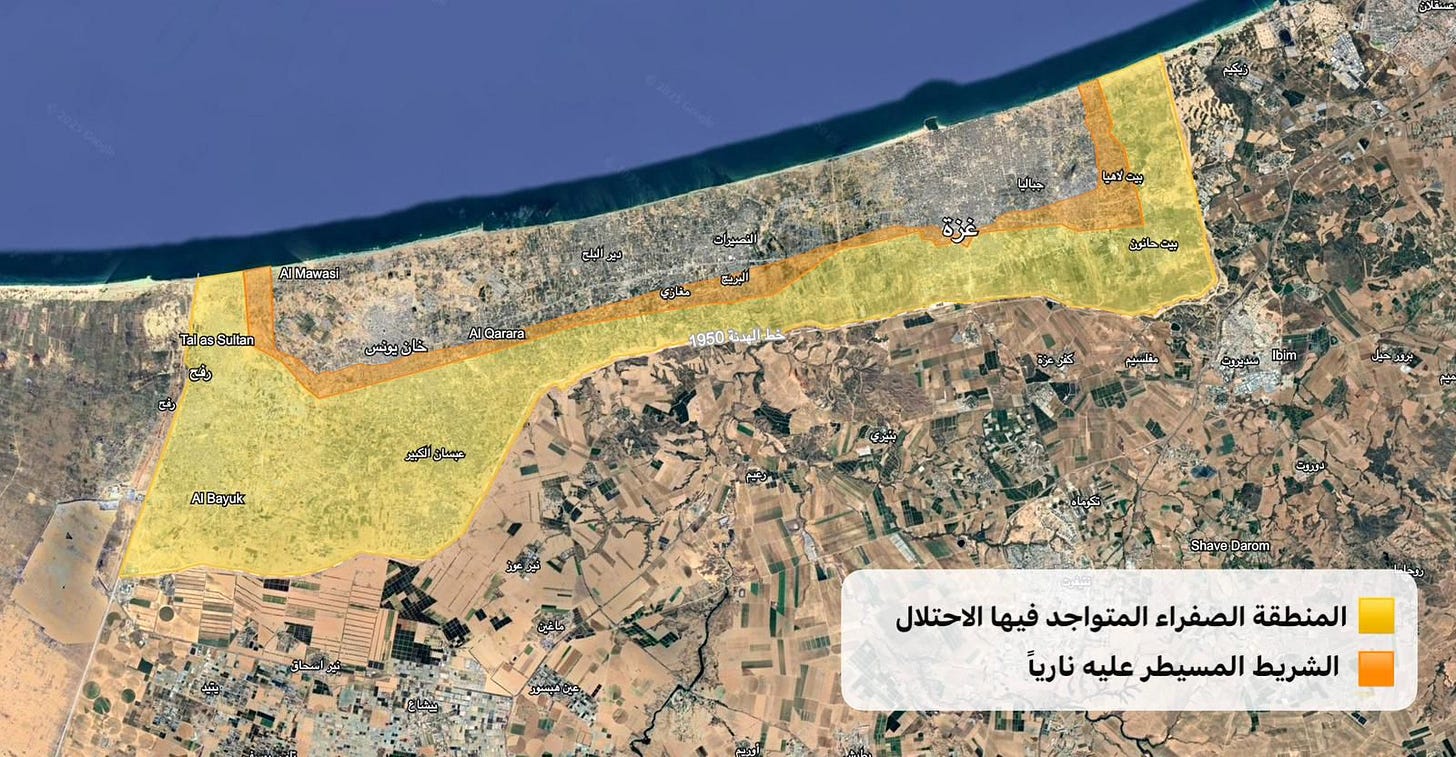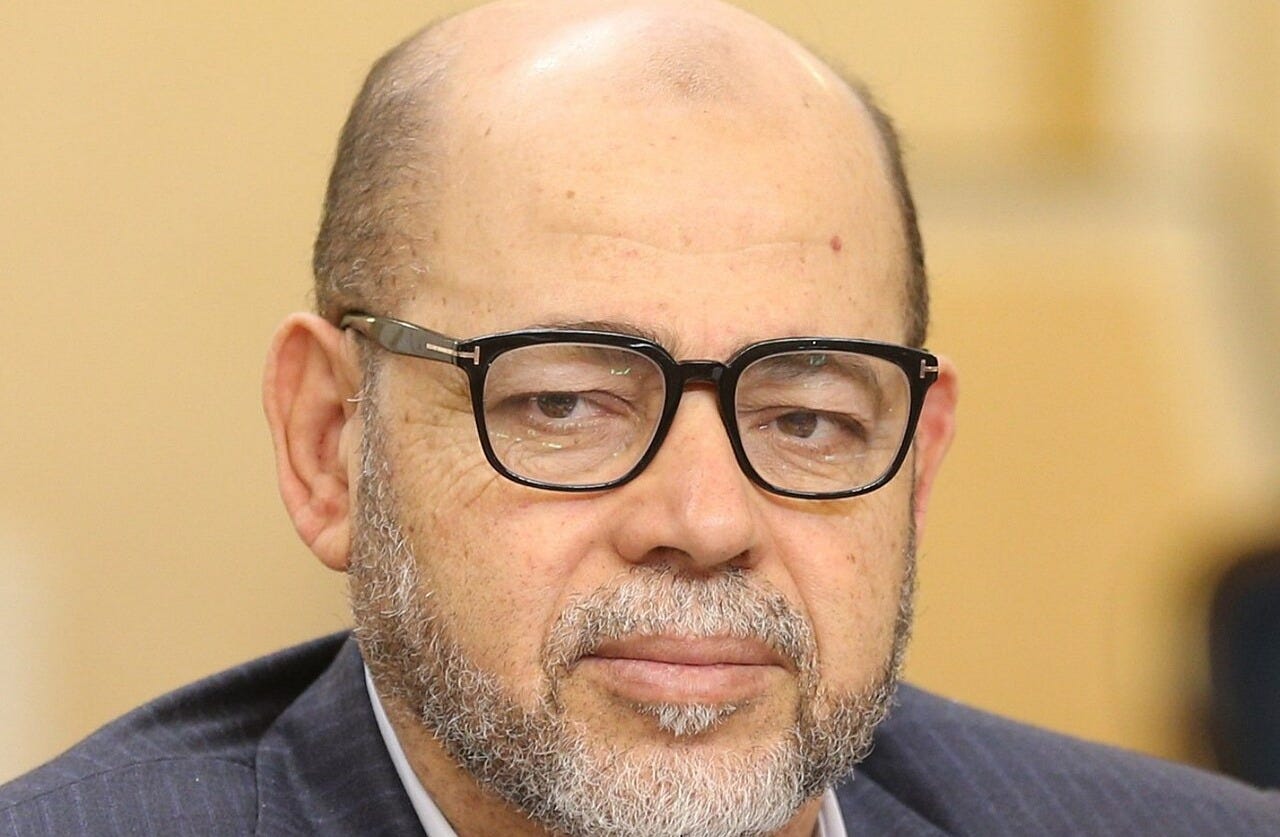Exclusive – Hamas reflects on October 7, says Israel left them no choice
In remarks to Deepcut, senior Hamas official denies group is clinging to power in Gaza and calls for Israel to be disarmed
Asmaa al-Ghoul, a Palestinian journalist based in France, contributed to this story.
Hamas says Israel’s response to the October 7 attacks “exceeded all expectations” and that the subsequent genocide in Gaza revealed Israel’s “true face”.
In an exclusive interview with Deepcut, Mousa Abu Marzouk – a senior member of Hamas’s politburo – also said the Palestinian group was committed to the ceasefire “but we have legitimate concerns that Israel may partially or completely breach the agreement”.
“The problem lies in the fact that Israel – as experience has repeatedly shown – does not abide by its agreements. Evidence for this is historical, numerous and ongoing, from daily bombings in Lebanon to the current violations taking place in the Gaza Strip despite the existing agreement,” Abu Marzouk said.
He warned that Hamas “cannot stand by as spectators while crimes are being committed against our people. Defending ourselves is a humanitarian duty and a legal right, especially when children and women are targeted, cities and hospitals are destroyed”.
October 7 reflection
We asked Abu Marzouk if the group held regrets over the October 7 attacks, which killed 695 Israeli civilians and 373 Israeli military personnel, and provoked an Israeli bloodbath that has killed at least 68,865 Palestinians – although the actual death toll is said to be much higher.
“The operation of October 7 was not the beginning of the matter; rather, it came within a long historical context of ethnic cleansing, aggression, blockade, and settlement building,” he told Deepcut.
“Successive Israeli governments have refused to grant our people even their most basic rights, while marginalising the Palestinian cause and implementing extremist plans aimed at liquidating it. This left us facing difficult choices – either to surrender to Israel’s schemes, thus resolving the conflict in its favour, or to resist with the simple means available to us.”
The scale of Israel’s response took Hamas by surprise, but “what surprised us most was the extent of international complicity”, Abu Marzouk added.
“Many countries provided Israel with political cover for its genocide against the Palestinian people, as well as military support in the form of weapons, ammunition, and intelligence.”
A UN report published in October found 63 countries, including Australia, had “facilitated, legitimised and eventually normalised the genocidal campaign perpetrated by Israel”.
A fragile ceasefire
Israel has killed at least 238 Palestinians, including 97 children, since the agreement went into effect on October 11. Israeli forces also remain in control of roughly 53% of Gaza’s territory and, according to Gaza’s government media office, is still hindering humanitarian aid – permitting the entry of only 145 of 600 aid trucks on a daily basis.
Fears are mounting that Israel may seek to permanently occupy the territory it holds, with an Israeli government official stating reconstruction of Israeli-controlled zones could proceed without an agreed-to second phase of the ceasefire deal.

“There are still Israeli commitments that have not been implemented to this day – among them the reopening of the Rafah crossing, withdrawal to the agreed-upon lines, and allowing the entry of equipment necessary for rebuilding infrastructure and hospitals. In addition, the occupation forces continue to kill dozens of Palestinians even after the ceasefire came into effect,” Abu Marzouk said.
The senior Hamas official said responsibility for maintaining the ceasefire “falls on the countries that guarantee the agreement”, principally the United States.
“The US administration provided us with verbal guarantees and assurances that Israel would not return to its genocidal war. The United States, given its influence and its relations with Israel, bears a direct responsibility to restrain the occupation from committing further crimes,” he said.
Can Hamas trust Trump?
Asked whether Hamas can trust the Trump administration will maintain pressure on Israel to abide by the agreement, Abu Marzouk said that “the Palestinian resistance does not base our political positions on trust in external parties”.
“Experience has taught us that successive US administrations – regardless of their [political] orientations – have always been biased toward the Israeli occupation. This is a reality we fully understand. However, it does not prevent us from engaging positively with any initiative that could end our people’s suffering and stop the aggression.”
Abu Marzouk said the negotiations in Egypt which brought about the October ceasefire “were intense and challenging, but we worked hard to reach an agreement”. He noted the “crucial role” played by US special envoy Steve Witkoff and Trump’s son-in-law Jared Kushner.
“We did not enter these negotiations to change others’ perceptions of us, but to save our people from genocide, restore life to the Gaza Strip, and prevent the occupation from continuing its daily crimes and violations,” he said.
“We viewed President Trump’s initiative as an opportunity to stop the bleeding and end the aggression against the Gaza Strip.”
Calls for Israel to be disarmed
Abu Marzouk rejected western calls for the Palestinian group to be disarmed, arguing that “weapons should be taken from the state with a nuclear arsenal that has committed crimes of genocide against our people – not from those who are defending their land and people from aggression and who possess only light arms”.
“We are the weaker party, and we are the ones most deserving of protection,” he said.
The ceasefire’s first phase included no stipulation that Palestinian groups be disarmed. This point was omitted in the final deal after the 20-point plan, proposed by Trump in late September, called for “a process of demilitarisation of Gaza under the supervision of independent monitors”.
Hamas was not consulted on the 20-point plan prior to its announcement, which Trump released alongside Israeli Prime Minister Benjamin Netanyahu – who is wanted by the International Criminal Court on war crimes charges.
“The Palestinian resistance today is a natural extension of our people’s struggle, which has lasted for more than a century against occupation and injustice,” Abu Marzouk said.
Not seeking power in Gaza
Abu Marzouk said Hamas “is not clinging to ruling the Gaza Strip, and this position predates the genocidal war”.
“We have reiterated our position on many occasions, even during the war, that we are open to forming a Palestinian national unity government. If that proves difficult, we propose a technocratic government made up of qualified, non-partisan national figures,” he said.
The Palestinian group, however, remained vehemently opposed to foreign rule in Gaza.
“Our only condition is that Palestinians govern themselves, and we categorically reject any external guardianship over our people.”
The ceasefire deal mentioned an international taskforce made up of the US, Qatar, Egypt and Turkey to oversee its implementation. But it remains to be seen if the taskforce will ever see the light, with Israel firmly rejecting Turkey’s involvement, and Hamas adamant in protecting Palestinian sovereignty.
An Axios report yesterday revealed the US was seeking to deploy foreign troops in Gaza as an “enforcement force and not a peacekeeping force” – setting up a potential clash with Hamas and other Palestinian groups operating in the strip. A draft US resolution to be brought to the UN Security Council also called for a controversial ‘Board of Peace’ to govern Gaza until at least the end of 2027 – effectively placing the Palestinian territory under US-led foreign occupation.
“The Palestinian people alone are the decision-makers in their existential affairs; their sovereignty over their land and their right to determine their future are not subject to the decisions of external parties,” Abu Marzouk told Deepcut.





I'm reminded of Yahya Sinwar's interview with Vice some years ago. He spoke about why they resist and what they're hoping to achieve for future generations. Media outlets in the West never give airtime to voices from these so-called "terror" groups. Their audiences are none the wiser about who they are, what motivates them, and what they're actually doing. We're always given the statements of Israeli or American officials and that's where the story ends.
When people start to see more pieces like this Deepcut interview, the human voice on the other side, they'll understand they're not so different after all.